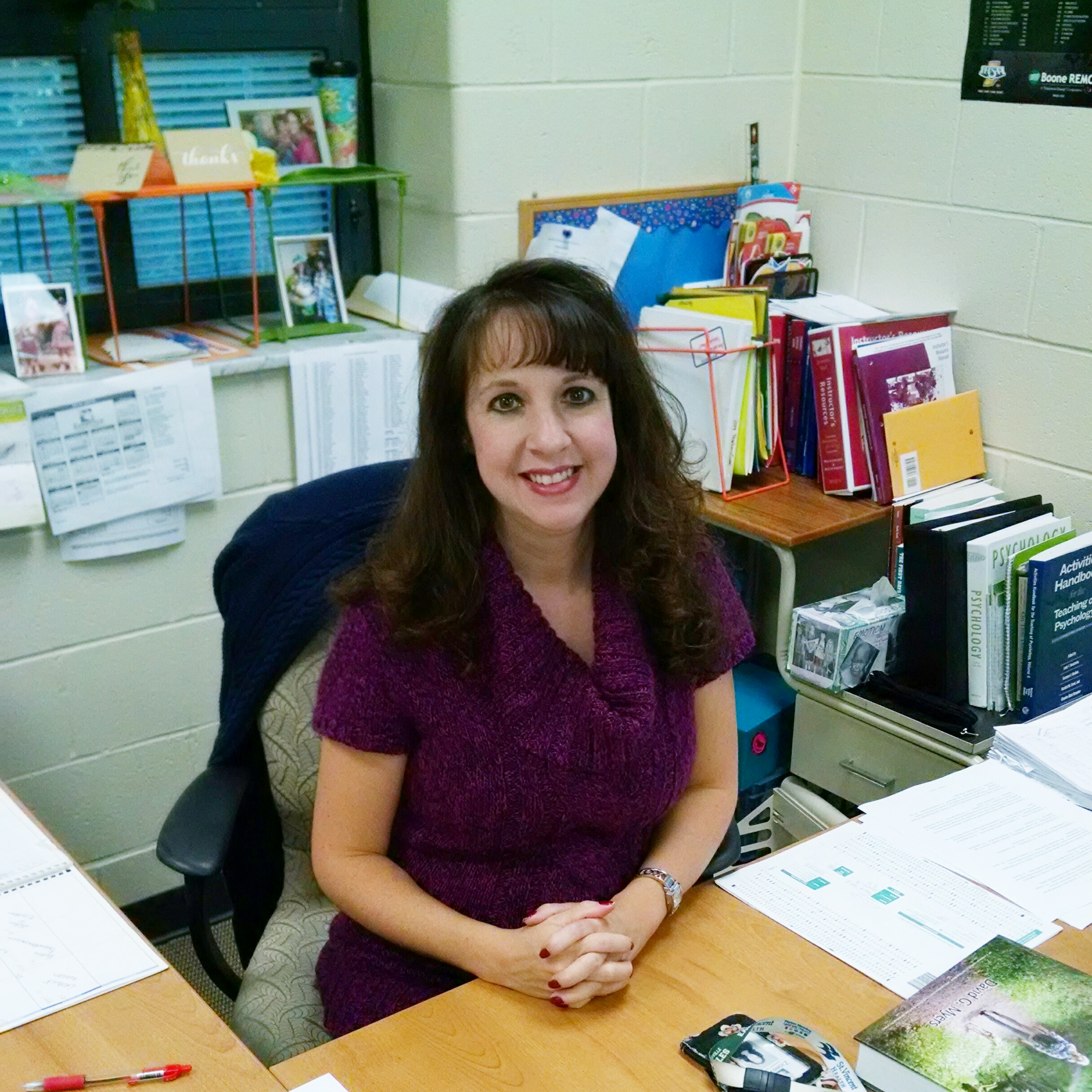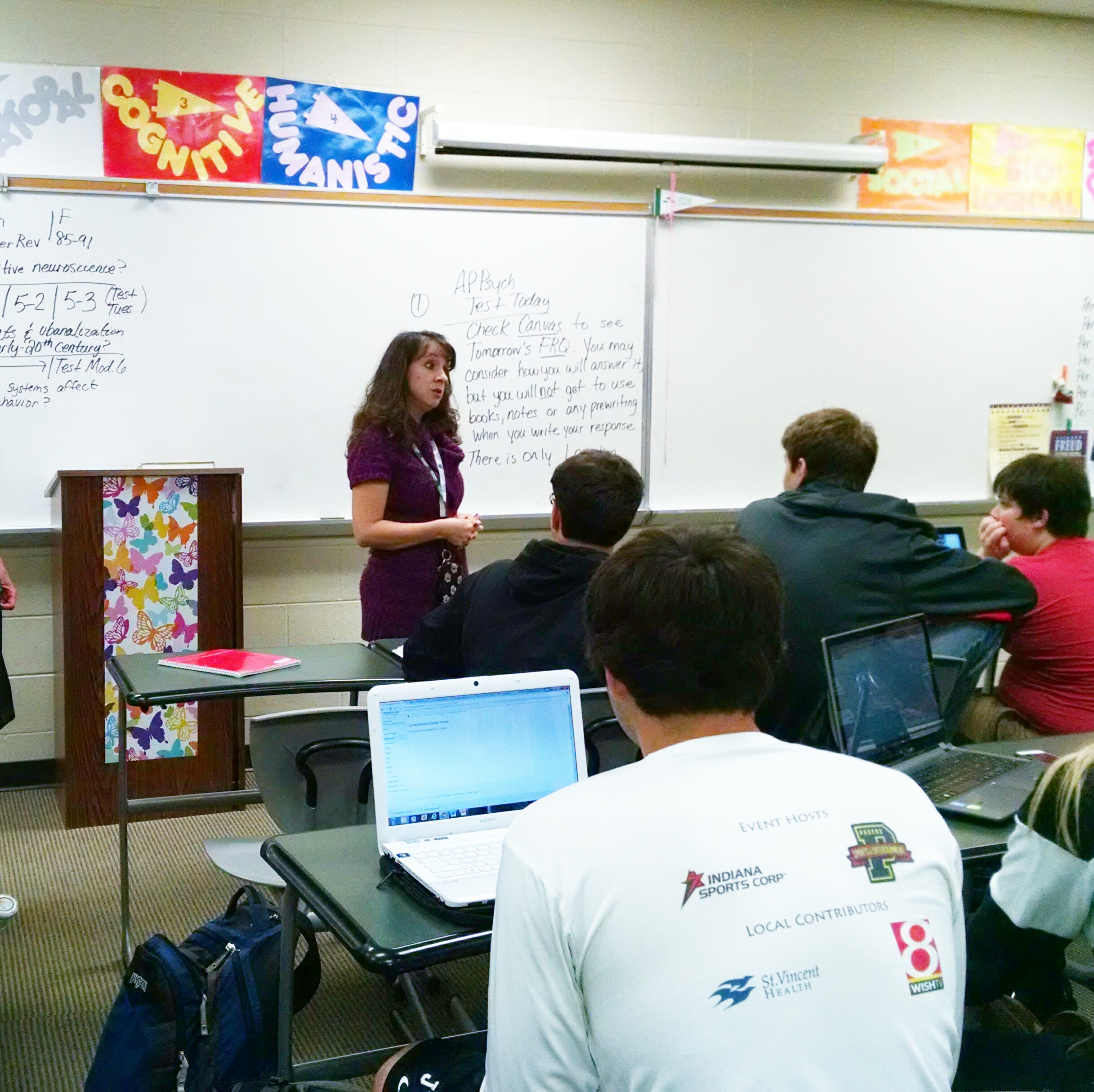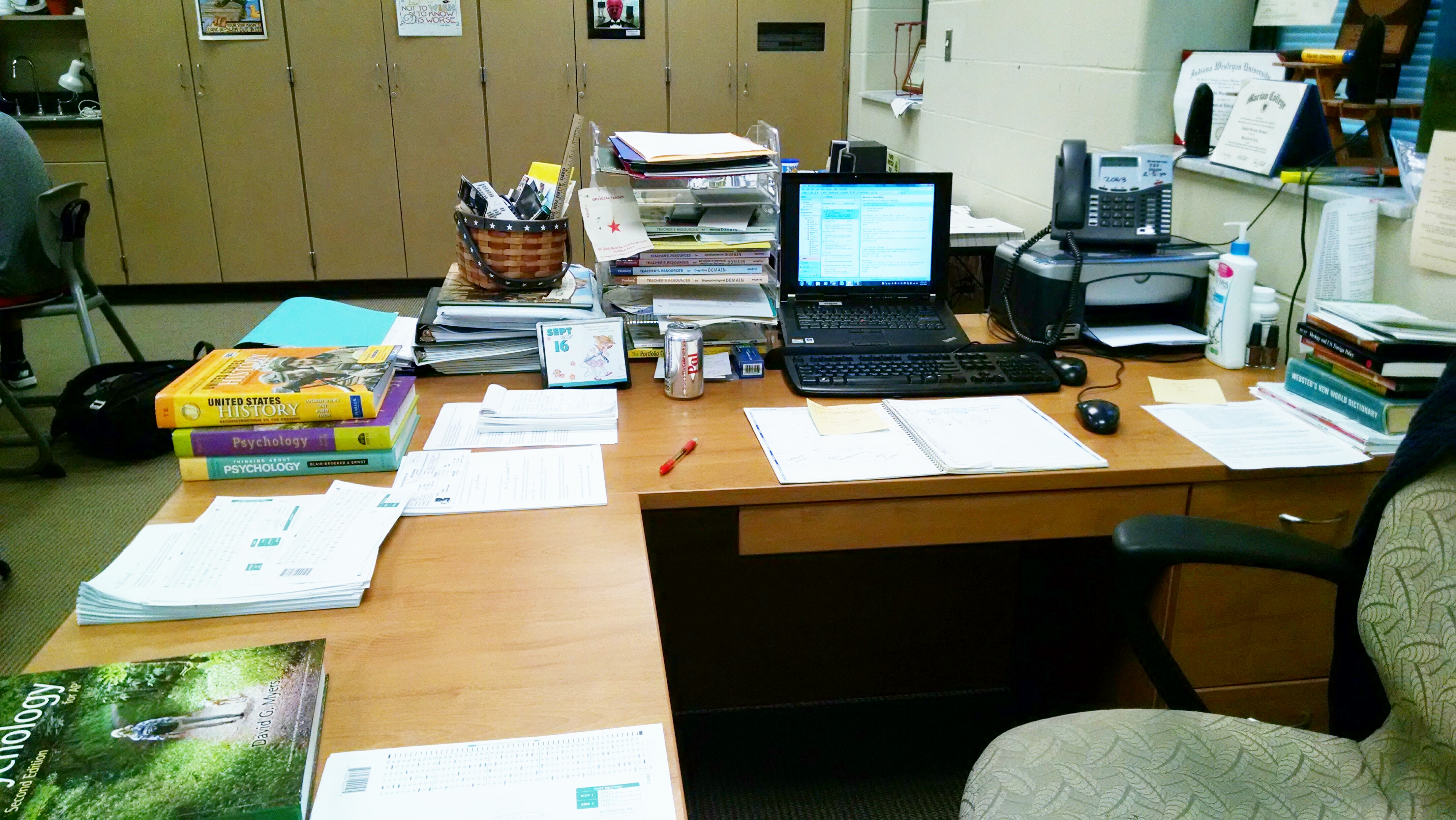|
 Editor's note: Amanda is the 2014 winner of the Mary Margaret Moffet Memorial Teaching Award! Congratulations, Amanda! Editor's note: Amanda is the 2014 winner of the Mary Margaret Moffet Memorial Teaching Award! Congratulations, Amanda!
Zionsville Community High School, Zionsville, Indiana. My town is a suburb northwest of Indianapolis with approximately 1,800 students. I teach AP Psychology Honors, Psychology, and U.S. History
What’s the best advice about teaching you’ve ever received?
This question makes me laugh because most of the advice I received wasn’t great advice. Some examples include: “Work smarter, not harder,” and “You just gotta throw a lot at ‘em and hope some of it sticks.” I’ve learned ways to “work smart.” I prioritize. I avoid busy work for myself and my students. I assess what’s essential and not frivolous activities. However, I also know you have to work hard to be a successful educator. I put a great deal of energy into professional development, sharing with others, and using what I learn from them.
I also believe that it’s important to provide students with as much information as I can, but I also know students have limits. I don’t have to inundate them with an information overload. I want students to be critical thinkers and walk away with a clear understanding of the content. It’s not about being a minimalist, but it does mean I’m selective about what I “throw at ‘em.”.
What book or article has shaped your work as a psychology teacher?
The book that shaped my work as a psychology teacher is one I wrote myself. Last year I compiled a Psychology teachers resource guide. It was a body of work I created over the past 16 years. It contained 50 lesson ideas that correlated to each of the National Standards for Psychology, AP Psychology Standards, and our local standards in Indiana. Not only did I “shape it,” but it “shaped me” as I reflected on what I teach, how I teach, what I assess, and how I assess.

Tell us about your favorite lecture topic or course to teach.
My favorite topics to lecture on are ones for which I have many mnemonic devices. I love not only teaching the content, but I also enjoy giving students techniques for recalling difficult material. When we cover the structures and functions of the brain, I have an extensive list of “memory tricks” to help them remember the content. It’s very gratifying when I have a student who has gone from high school Psychology and through graduate school who still remembers to think of the thalamus as “Thelma (thalamus) the switchboard operator who sends sensory information where it needs to go” or “Amy the emotional girl (amygdala)” and others in the long list of mnemonics we use.
Describe a favorite in-class activity or assignment.
My favorite in-class activity is when students reflect on how the content connects to their own lives. Sometimes during the unit on Development, for instance, they’ll write journal articles, make a baby book, or create a Power Point or Prezi on how the theories to their own lives.
What teaching and learning techniques work best for you? (quizzes? homework? take home exams?)
Some of the teaching strategies I use include class discussion, daily reading quizzes, on-line lab activities, and chapter tests. I find that with the use of frequent assessments students retain more information. We sometimes do projects, but I find students getting wrapped up in making something look pretty, but it’s weak in content. I am enjoying our 1:1 student:computer ratio, and I’m deliberate about infusing meaningful technology into my teaching. One of my goals this year is to learn better ways to do this.
What’s your workspace like?

My workspace is often looks like a disaster zone, but I can usually find what I’m looking for! I like having what I need within arm’s length, and I use a lot of ancillary materials. I usually have a stack of papers to grade, and one that’s been graded and is ready to hand back. I’ve got my plan book – hard copy and on-line copy, folders for each subject and each unit, and usually a few empty Diet Coke cans. I have funny pictures of students, my daughter, and one of my brother and I when we were preschoolers eating corn on the cob at the Indiana State Fair – my diplomas, certificates, and thank you notes from students and parents. These things are my security; they are what makes me smile; and they are what keep me moving!
Three words that best describe your teaching style.
Storytelling, humorous, interactive
What is your teaching philosophy in 8 words or fewer?
Help students become the best they can be.
Tell us about a teaching disaster (or embarrassment) you’ve had.
My disasters usually happen in U.S. History and not Psychology. For example, I interchange the words pregnancy and presidency all the time: “During Ronald Regan’s pregnancy….” The kids crack up when this happens, and I have no idea why I do this. Is it a Freudian Slip?
What is something your students would be surprised to learn about you? Early in my teaching career, I spent Spring Break in Okinawa, Japan visiting a friend of a friend whom I’d only met one time before. I was so excited, as I also teach U.S. History, to visit a location with such historical significance. Since I could only afford the plane ride, the friend let me stay in a comfortable guest room and was my personal chauffeur for the entire week – free of charge. It was my most unique and memorable spring break. I spent the plane ride each way grading Psychology research projects.
What are you currently reading for pleasure?
I’m not…What is this “reading for pleasure” of which you speak? Honestly, what I read for pleasure are cookbooks. I love trying new things, and cooking is my outlet at the end of a busy day.
What tech tool could you not live without?
I’m learning to use Weebly, and we have Canvas as our course management system. I love both of these!
What’s your hallway chatter like? What do you talk to colleagues about most (whether or not it is related to teaching/school)?
We usually don’t talk about school in the hallway – when we’re talking to kids, it’s usually about a recent sporting event or extra-curricular activity.
|
